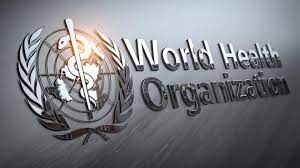
The World Health Organization (WHO) has called for a new era of strategic action to make the world’s cities healthier, fairer, and more resilient, unveiling a global guide to help governments integrate health into every aspect of urban development.
More than 4.4 billion people, over half of humanity, now live in urban areas, a figure projected to rise to nearly 70% by 2050. In cities, health, inequality, environment, and the economy intersect in complex ways, creating both significant risks and unique opportunities for progress.
WHO noted that the worst health outcomes are often concentrated in slums and informal settlements, where residents face unsafe housing, inadequate sanitation, food insecurity, and increasing exposure to climate-related hazards such as floods and heatwaves. Currently, about 1.1 billion people live in such conditions, a number expected to triple by 2050.
To address these challenges, WHO has launched a new guide for decision-makers titled “Taking a Strategic Approach to Urban Health.” The document provides practical tools to help governments adopt integrated, evidence-based strategies that promote health and well-being in urban settings.
“This is a moment for decision-makers at every level to act together,” said Jeremy Farrar, WHO’s Assistant Director-General for Health Promotion, Disease Prevention and Care. “The guide gives national and municipal leaders, planners, partners, and communities a framework to work together across sectors and scales to build fairer, healthier, and more resilient futures.”
On his part, WHO Director of Health Determinants, Prevention and Promotion, Etienne Krug, said cities remain central to advancing public health, noting that the guide provides governments with a roadmap to act strategically by linking health initiatives with major global priorities such as climate change, transport, digital transformation, and migration.
The guide stresses that health is not the responsibility of one sector alone. Decisions on air quality, housing, transport, digital access, finance, and regulation all shape the well-being of urban populations. Taking strategic action, WHO said, means aligning these policies to create equitable, sustainable, and resilient cities that foster health for all.
Alongside the guide, WHO says it is also launching the first three modules of an Urban Health E-Learning Course via the WHO Academy to strengthen collaboration and build capacity among policymakers and practitioners working in urban environments.


